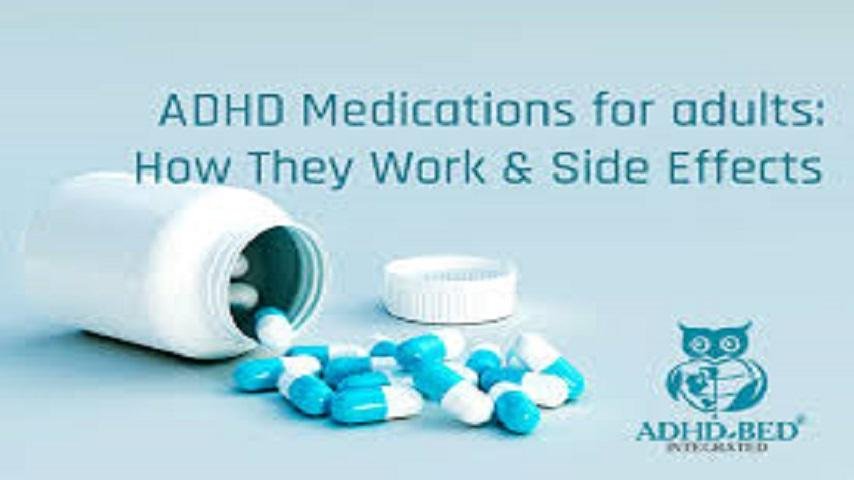The concepts of deficit and disorder are frequently used to describe Attention Deficit Hyperactivity Disorder (ADHD), highlighting issues such as impulsivity, inattention, and hyperactivity. Although these characteristics can present challenges, such a limited perspective ignores the numerous advantages and distinctive characteristics of ADHD. In addition to dispelling myths, acknowledging ADHD as a neurodivergent strength enables people to flourish by utilizing their unique skills.
Dispelling the Stereotypes
A common misconception about ADHD is that it only affects kids, that it causes persistent hyperactivity, or that it is the product of bad parenting. These misconceptions undervalue the real-life experiences of people with symptoms of ADHD and frequently overlook its complexity. For example:
In many cases, ADHD continues throughout adulthood, impacting relationships, employment, and self-perception.
Different people experience ADHD in different ways; for instance, some may struggle with inattention instead of hyperactivity.
ADHD is a real neurological difference rather than just a lack of self-control or discipline.
The Viewpoint of Neurodiversity
Proponents of neurodiversity contend that disorders such as dyslexia, ADHD, and autism are normal variations of the human brain rather than deficiencies that need to be "cured." Because of the differences in their wiring, ADHD brains have special benefits in particular settings. This viewpoint reinterprets ADHD as a neurodivergent strength that can unleash enormous potential if it is recognized and nurtured.
The ADHD Brain's Capabilities for Innovation and Creativity
The thoughts of people with ADHD are frequently full of ideas. Because of their non-linear thought patterns, many people with ADHD are naturally able to think creatively. This inventiveness can result in ground-breaking inventions and fresh approaches to issues.
Many well-known inventors, artists, and businesspeople, including Simone Biles and Richard Branson, attribute their success to having ADHD. They have broken down barriers and accomplished amazing achievement because of their capacity to think differently.
Hyper-attention
People with ADHD frequently have times of hyperfocus, or strong concentration on a task of interest, even if the disorder is linked to inattention. This capacity for intense concentration can lead to great output and outstanding achievement in fields they are enthusiastic about.
Adaptability and Resiliency
Having ADHD frequently means navigating a world that is made for neurotypical brains, which calls for persistence, flexibility, and problem-solving skills. These traits foster resilience, which enables people with ADHD to manage difficulties and perform well under duress.
Energy and Spontaneity
People with ADHD can be lively, adventurous, and receptive to new experiences because of their impulsive nature. When used properly, their high levels of energy can be a great advantage in situations that are fast-paced and dynamic.
Intuition and Empathy
A lot of people with ADHD exhibit increased empathy and emotional sensitivity. Strong interpersonal skills and an innate awareness of others' needs and emotions can result from this, making them great friends and partners.
Overcoming Obstacles with Assistance
Despite its positive aspects, ADHD has drawbacks that should not be disregarded. Impulsivity, organization, and time management issues can cause problems in both personal and professional spheres. Nonetheless, people can overcome obstacles and capitalize on their abilities with the correct assistance and techniques
Coaching and Therapies
ADHD coaching and cognitive-behavioral therapy (CBT) can offer resources for efficient symptom management.
Helpful Resources
Technology may help with focus and organization. Examples of this include reminder systems and scheduling apps.
Advocacy and Education
Unnecessary obstacles can be eliminated by being aware of ADHD and fighting for accommodations at work or school.
Shifting Social Attitudes
It is necessary for society to change its perception of neurodivergence in order to acknowledge ADHD as a strength. This comprises
Raising Awareness
Public education initiatives help debunk misconceptions about ADHD and emphasize its benefits.
Establishing Inclusive Environments
Workplaces and educational institutions ought to be planned to accommodate a range of neuropsychological requirements. Alternative workspaces, flexible scheduling, and leadership awareness can all have a big impact.
Celebrating Success Stories
By showcasing the accomplishments of people with ADHD, we can encourage others and dispel harmful preconceptions.
Accepting ADHD as a Special Benefit
Self-acceptance is the first step towards accepting ADHD as a neurodivergent strength. It's important to recognize the difficulties that people with ADHD face as well as the characteristics that make them special. This viewpoint has the capacity to change the narrative from one of dissatisfaction to one of empowerment.
By creating a supportive and understanding environment, family, educators, and employers can help people with ADHD reach their full potential. Society gains from ADHD's inventiveness, creativity, and resilience when neurodiversity is valued.
In conclusion
ADHD is a style of thinking and being with its own special benefits rather than just a medical problem that needs to be treated. We open the door to a more empowered and inclusive future by shedding prejudices and acknowledging ADHD as a neurodivergent strength. People with ADHD can flourish not because of their differences but because of them, bringing new insights and significant contributions to society.


